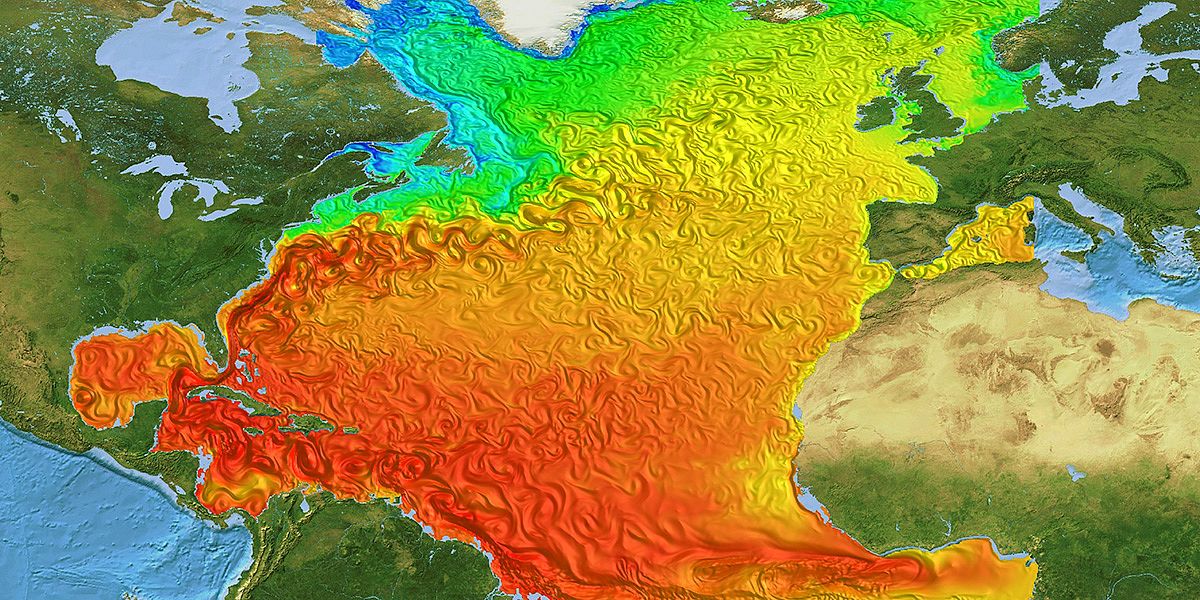Research Division 1 "Ocean Circulation and Climate Dynamics" consists of four research units: Marine Meteorology, Palaeo-Oceanography, Physical Oceanography and Ocean Dynamics.
Climate variations can be externally forced or internally generated by atmospheric and oceanic processes. The sediments of the seafloor and the organisms contained therein record these changes and are important marine climate archives. To decipher past and future mechanisms of climate change oceanographic, geological, and meteorological measurements at sea, analytical investigations in the laboratory, and computer simulations with complex ocean models are applied.
Research in the Division includes
- Advancing our understanding of the physical processes and phenomena in the ocean and the atmosphere which are critical to the large-scale mean and variability of the ocean-atmosphere system.
- Deciphering modern and past global changes in ocean circulation and climate by quantifying current variations in key aspects of the ocean-atmosphere system and exploring marine climate archives. In addition, water mass properties, marine organisms, and seafloor sediments provide unique data sets for the evaluation of the present and past state of our planet.
- Developing and applying numerical models that incorporate process dynamics in order to allow realistic simulations of ocean variability and its interaction with the atmosphere and the ocean biogeochemistry,a prerequisite for assessing past changes on different time scales. These modelling results can be applied to explore the predictability of climate variability and anthropogenic change.
A particular strength of the division is a combined expertise in large-scale and process-oriented modelling, observational tools and sea-going capabilities to address the dynamics governing the present day system. These strengths, coupled with palaeo-oceanographic expertise allow the division to improve its understanding of past climate scenarios.
Accordingly, GEOMAR’s strategy is to examine the forcing mechanisms of present and past large-scale circulation variability including processes of ocean-atmosphere interaction. The research program of the respective disciplines is well integrated with international programmes related to future and past global change and variability.



![[Translate to English:] Ein beleuchtetes Forschungsschiff im Eis in dunkler Nacht](/fileadmin/_processed_/c/3/csm_MOSAiC_c_SteffenGraupner_d5e6c4a5ce.jpg)
![[Translate to English:] Sunset over the sea](/fileadmin/_processed_/6/8/csm_151205_1247_0659_SO244_JSteffen-GEOMAR_efcbcfe2ff.jpg)
